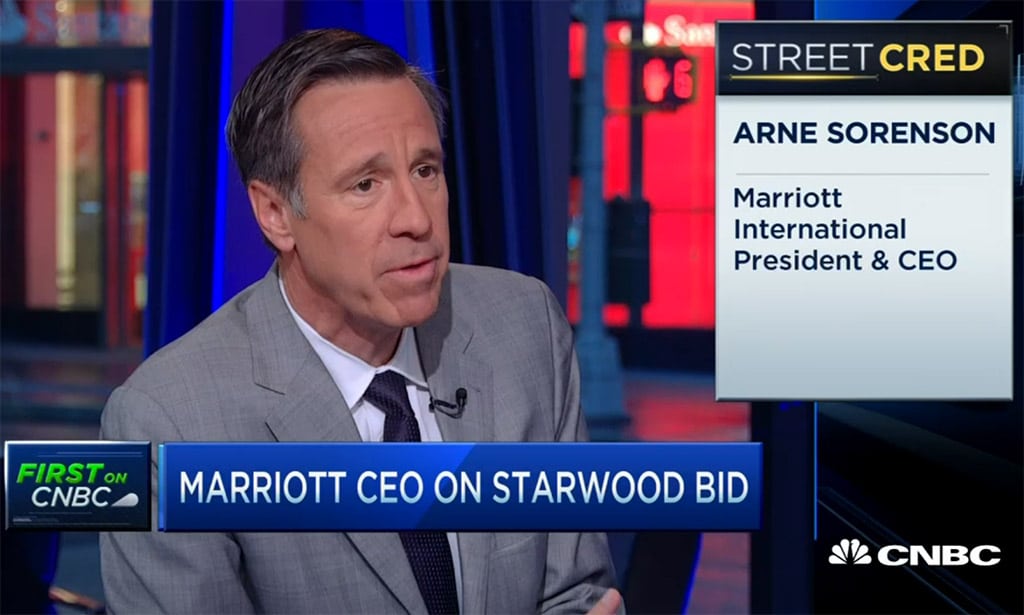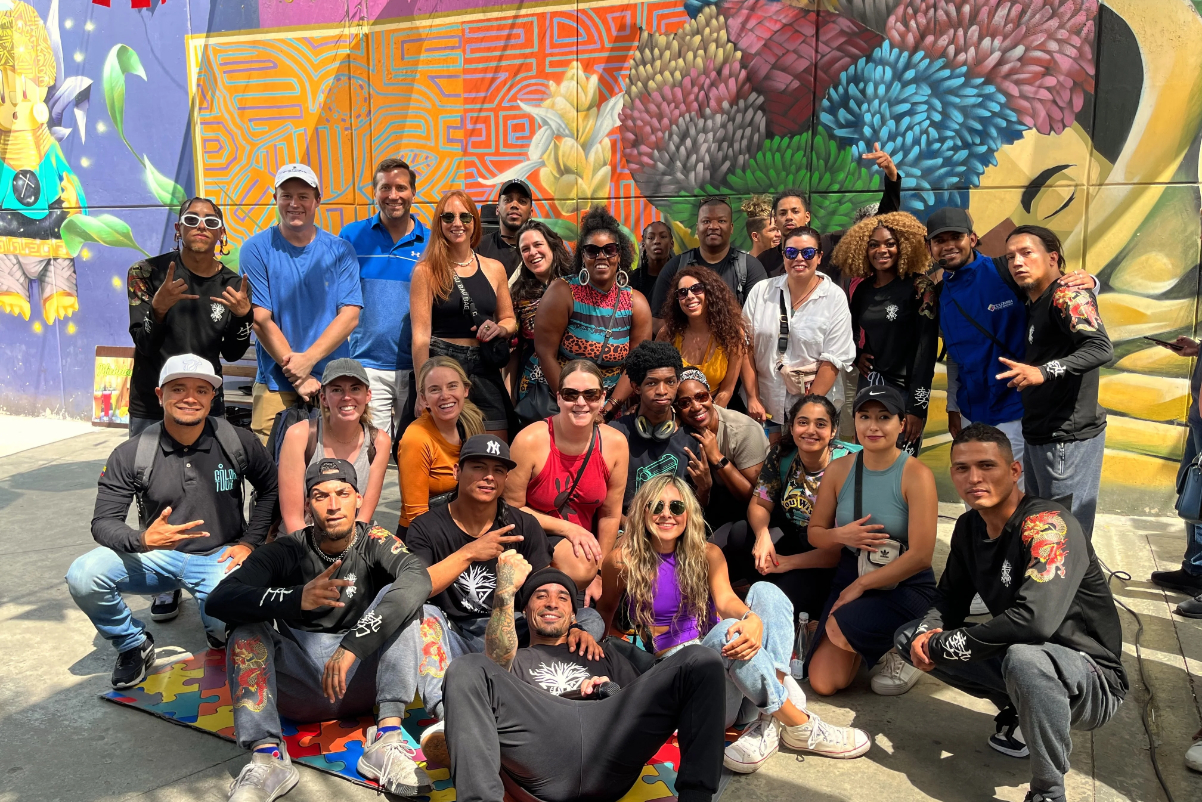Marriott CEO: Most Important Thing for Us Is the Loyalty Program

Skift Take
Marriott International CEO Arne Sorenson appeared on CNBC this morning for a wide-ranging interview to discuss the departure of Anbang Insurance Group from the bidding process for Starwood Hotels and Resorts.
In addition to talking about the benefits of Marriott’s deal over Anbang’s he also discussed loyalty, brand distinction, and the moves by some U.S. states to provide religious shields for discriminatory behavior.
Appearing much more elated than he has on recent appearances during the three-week bidding war, Sorenson told the hosts, “I’ll take congratulations this morning.”
He argued that Anbang’s first offer to buy Starwood was real and worthy of a strong counter-offer from Marriott, while the second offer did not have everything lined up to close it. “Of course we would love to have this company for a billion dollars less,” he said.
“To be fair, it’s worth more to us in some respects because we’ve got immediately $250 million in cross-synergies which make the EBITDA multiple we’re effectively paying meaningfully lower than what they would have been paying because they had no existing business to bring the same kind of scale. That doesn’t even get to what we can do on the revenue side with stronger loyalty programs with broader distribution. We think there’s some tremendous upside we’ll be able to work the next few years.”
Sorenson spent time discussing the loyalty programs of both hotel chains and their place in his list of priorities. “The most important thing for us to succeed at is the loyalty program,” he said. “You’ve got with SPG and Marriott Rewards two big groups of very loyal customers. We’ve got to make sure you’re enthusiastic about the changes. I think we can make sure the benefits stay the same if not get better and offer them a broader selection of places to stay.”
“I hope we can do some things very, very quickly. At the same time we’ve got AMEX with a credit card with the SPG program and JP Morgan Chase Visa with a credit card with the other program, we’ve got to work through all these things.”
Sorenson alluded to additional benefits of the combined company by pointing out its negotiating power with credit card companies and beverage ones, too. “One of the great things about this deal when we first announced it in November is
I heard from Ken Chenault, Jamie Diamond within hours. I heard from Idra Nooyi and Muhtar Kent within hours. It gives you a sense of the interest of these companies in what we do. They’re all good partners of ours and we’ll work through with them over time. In some areas we’ll pick sides and some we won’t have to pick sides.”
Sorenson said that there were no current plans to shutter any of the combined company’s 30 brands, noting that long-term contracts with hotel owners made reflagging difficult. Instead he said “We will do what we can to drive distinctions between the brands.”
“Ritz-Carlton and St. Regis,” Sorenson said when asked about brands that may be too similar. “We think there’s plenty of room in both of those brands for both those luxury brands. We can find some things, some product cues or service clues that essentially say ‘here you’re in a St. Regis.'”
Marriott has been vocal on multiple occasions about LGBT rights in the U.S., and Sorenson reiterated that position when answering questions about new laws in North Carolina and Georgia.
“Very interesting to see how this moves,” he said. “You’ve seen particularly in the LGBT area a massive shift towards acceptance in hospitality and now there’s a counter wave in some areas. And you’ve got customers who speak with their feet. When we spoke up in Indiana we were already getting cancellations from groups.”
“What happens in North Carolina exactly, who knows. There will be some politicians who are, I think, not terribly bright who think they can put a stake in the ground and be proud of this. And they’ll hurt business in their state.”





